Environmental Management
KAI strives to fulfill its social responsibility to minimize
environmental pollution, based on global ISO14001
Environmental Management System.
-
Environmental
Management system - Response to Climate Change
- Renewable Energy Investment
- Resource Circularity
Resource Circularity
-
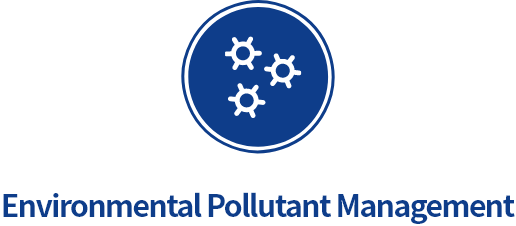
KAI has established an environmental management system to minimize the generation of environmental pollutants in all its business activities, including the design, development, manufacture, follow-up support, upgrade and modification, maintenance, repair, and operation of military and commercial aerostructures and related parts, and to create an eco-friendly workplace. KAI also applies internal management standards that are stricter than legal standards to reduce environmental
pollutants and strives to protect the environment and ecosystem by minimizing the generation of fugitive dust in the workplace, optimizing the operation of prevention facilities, and using eco-friendly equipment to provide eco-friendly value to customers. -
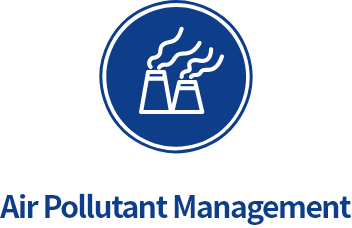
KAI promotes various activities to improve the air environment by tightening emission limits for air pollutants and complying with environmental regulations, such as the seasonal fine dust management system. In order to reduce the emission of air pollutants generated during the manufacturing process, the Company applies the best available technology (BAT) appropriate to the characteristics of the pollutants and sets internal management standards that are stricter than the legal emission standards to manage the emission situation.
-
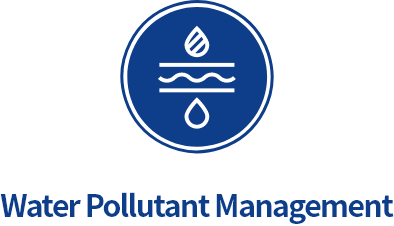
Wastewater from processes such as surface treatment and heat treatment at KAI's facilities is collected at in-house wastewater treatment facilities. Subsequently, it is sent to primary physical and chemical treatment and secondary treatment at public wastewater treatment facilities before being discharged into external waters. To minimize environmental impact, KAI has established internal standards for water quality management, monitors its own water analysis for environmental pollutants in wastewater on a daily basis, and regularly requests analysis from an external agency to ensure the reliability of the data.
In addition, KAI minimizes the amount of wastewater generated by replacing outdated wastewater treatment equipment through age assessment and introducing wastewater reuse facilities. -
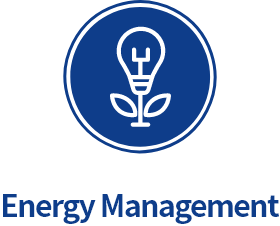
KAI manages the use of buildings and equipment at all times by establishing a system for monitoring energy consumption at its facilities. It also operates a systematic energy management system, certified with an energy management system (ISO 50001) in 2023.
In addition, KAI has minimized the increase in the amount of electricity consumed at its facilities and achieved a significant year-on-year reduction in gas and water consumption through energy-saving activities at its headquarters and places of business.
To continuously promote these energy reduction efforts, an energy portal system has been established and operated to easily check and analyze the total amount of energy consumed, and all management personnel systematically check and manage consumption and costs by organization, building, and facility. -
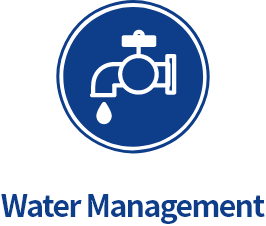
To manage water resources efficiently at its places of business, KAI is striving to reduce water consumption and minimize wastewater generation by investing in water reuse facilities. To this end, in the 2023 fiscal year, KAI conducted a detailed analysis of water consumption, inspected water pipes, and implemented measures to block leaks. In addition, facilities for reusing recycled water from the chemical production process instead of disposing of it were implemented and improved at the Sancheong Factory, and from 2024 on, KAI plans to build related facilities at its headquarters to reuse recycled water in large quantities.
-
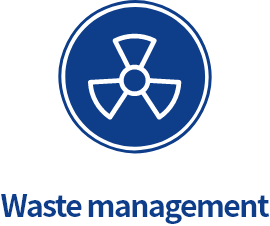
KAI identifies new waste generation, authorizes and permits, checks discharge information, collects waste separately by type, stores them in waste storage facilities, and conducts waste treatment through legitimate contractors. The Company strives to prevent and quickly respond to environmental accidents by complying with legal storage standards under the Waste Control Act, keeping storage records, and conducting 24-hour monitoring of waste storage facilities. KAI manages various items such as waste authorization and permission, waste transfer information, waste management ledger, and annual waste discharge performance through the Ministry of Environment's Allbaro system and visits waste contractors once a year to check authorization and permission, administrative disposal, transportation and treatment facilities, and management status to determine whether the waste is properly disposed of.
-
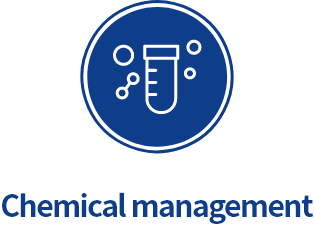
KAI reviews and responds to regulated substances in accordance with relevant laws and regulations, such as the Chemical Substances Control Act, the Act on Registration and Evaluation of Chemical Substances, and the Occupational health and safety Act, from the purchasing stage of chemical substances and manages them through a system so that they can be used in the production process after final approval by the Safety Environment Team, in order to minimize legal risks and ensure safety in the use of chemical substances.